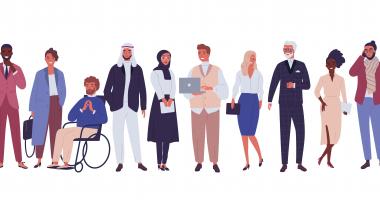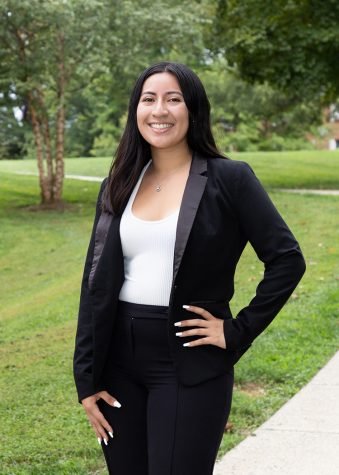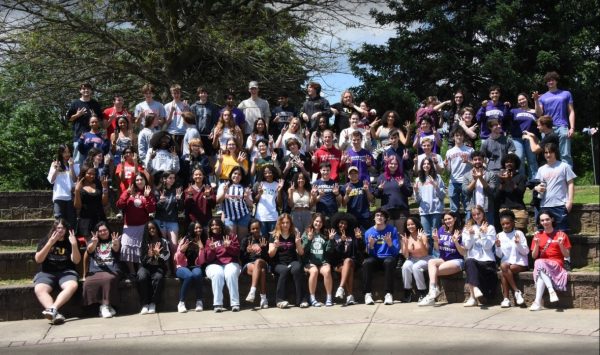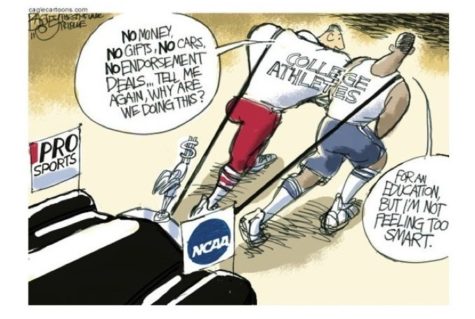The Importance of Representation in the Workspace

Last year, SSFS’ upper school student government association, Torch, wrote the 2019 Diversity Letter. The letter recognized the student body’s desire for diversity in the hiring process and essentially more representation of adults from diverse backgrounds in the faculty and administration. I volunteered to voice the student body’s concerns at the Board’s monthly Diversity, Community, and Spiritual Life meeting, but I had to excuse myself from the men’s varsity practice because I was one of the managers on duty that night. I briefly told Coach I was going to a Board meeting on behalf of the student body to express why diversity in the hiring process was a priority for the student body and the coach asked, “Why?” I responded, “Because students of color and adults need relationships with people like themselves that can understand and support them.” He asked, “Why?” again and I felt mute.
Before this day I was never asked “Why?” twice. I felt like my first response was strong and reasonable. At the moment, I felt challenged, but now I understand the intent behind the second “Why?” It was not for humiliation. The coach was preparing me for the opposition that would arise for this fight for more representation. This opposition did not come from Sandy Spring, but he was hinting that I would find it in other spaces as I entered adulthood.
Representation is crucial for underrepresented voices because it inspires them to envision themselves in spaces they do not often see the representation of their community in. To give you an idea, Michelle Obama’s tweet about the pivotal cultural impact of the Black Panther movie precisely emphasizes the importance of seeing your people represented in different mediums. She tweeted, “Congrats to the entire #blackpanther team! Because of you, young people will finally see superheroes that look like them on the big screen. I loved this movie and I know it will inspire people of all backgrounds to dig deep and find the courage to be heroes of their own stories.” I concur with Michelle because I also view women of color in the media and workforce as superheroes and inspiration for my goals in life.
It wasn’t until I attended the United States Hispanic Leadership Institute Conference that I recognized how crucial it was for me to see Latinx representation in the field I aspire to join, the workplace of politics. I was invited to attend the USHLI conference as a recipient of the Dr. Juan Andrade Jr. Scholarship for Young Hispanic Leaders. From February 20th to the 23rd, I attended workshops and seminars that stressed the power, strength, and leadership necessary of the Latinx community for this generation.
Elizabeth Cervantes, a member of USHLI’s Leadership team, summarized USHLI as, “not only an organization that has harnessed power for Latinx generations of youth for nearly 40 years, but [it] has created a safe space to learn, share, grow, and dare to believe in the potential and beauty of our community. Every year for the last 10 years, since I have been involved with USHLI, I get to meet young Latinx students who are dreaming of a world that is more inclusive and representative, but become activated and encouraged to step into action when they meet thousands of others just like them, and suddenly that dream feels closer. Every conference becomes my reminder that the world we want to see is possible and achievable, but it requires a village, and USHLI creates that crucial space where young Latinx students can add people to their villages, tools to their belt, and ideas to their visions.”
I felt uplifted by the stories shared at USHLI of struggle and success from Latinx leaders that conquered infinite hurdles and now pursue the work of their dreams. I finally met women who I shared an experience with and they held careers in spaces I rarely saw my community represented in. Latina democratic strategists, political commentators, speechwriters, and other leadership positions in the field of politics. I want to sincerely thank USHLI for inviting Latinx leaders pioneers in their field of work. I rest assured that my aspiration to work policy change and social work is achievable, and not impractical.
In summary, USHLI showed me that although I do not often see Latinx women in mainstream media in government work, their representation exists. The same applies to Sandy Spring as we continue our hiring process for new faculty and administration. There is a great deal of qualified and diverse candidates waiting for the opportunity to thrive and enrich communities like SSFS. This request for representation is not the student body saying let’s hire diverse candidates solely based on their “diversity.” Let’s hire qualified people and also look at the impact that their character and identity will have on our community.
It is now our time, as an institution, to enthusiastically embrace these voices. There is nothing sacrificed when we add or strictly emphasize the factor of diversity to our hiring process. In fact, the turnout of representation of diverse voices is jubilation, tenderness, and motivation. I’m proud to see the investments our community has already made for this work. Beginning with the hiring of Rodney Glasgow as the Head of School to the new opening position of a Director of Diversity, Equity, and Inclusion for the 2020-2021 Academic Year. Sandy Spring community members are taught to live according to George Fox’s motto, Let your Lives Speak, and this is the Sandy Spring student body speaking our truth. I look forward to coming back to Sandy Spring and seeing the innovative and inclusive ways we speak to the truth that diverse representation in the faculty and administration matters and is imperative for our community.
Image citation: https://builtin.com/diversity-inclusion

Hi everyone! I'm Michel Ruiz Fuentes, and I'm a senior. I've been a writer and editor for Wildezine for the past three years. I am excited to publish op-ed...










